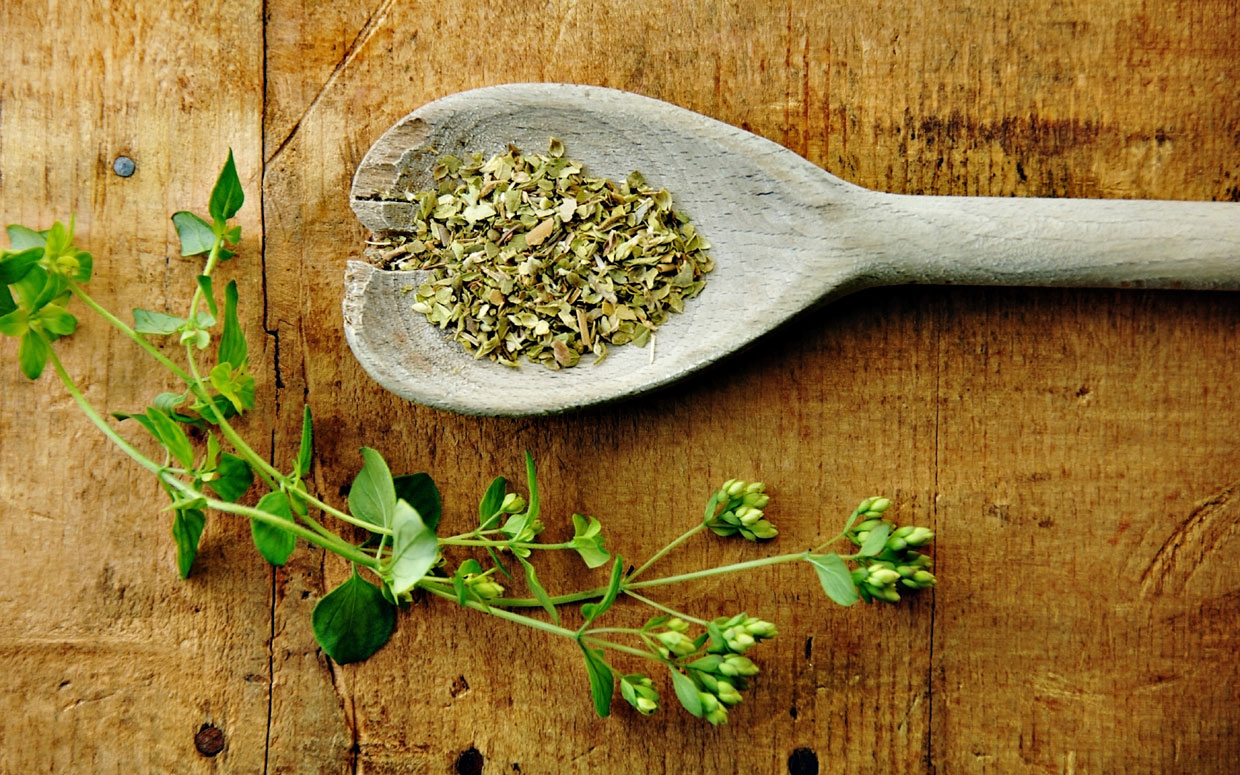Ρίγανη: Το θεραπευτικό ¨κόσμημα¨ των βουνών
(Ορίγανον το κοινόν – Origanum vulgare)
Η λέξη «ορίγανον» προέρχεται από το ελληνικό «όρος» και το «γκάνος» που σημαίνει λαμπερό, άρα, ορίγανον σημαίνει λαμπερό βουνό. Αποτελεί το πιο δημοφιλές βότανο της Μεσογείου και λατρεμένο μυρωδικό της ελληνικής κουζίνας. Εδώ και χρόνια έχει αναγνωριστεί ως «λειτουργικό τρόφιμο» για τις αντιοξειδωτικές του ιδιότητες και την πρόληψη σε πολλές ασθένειες.

Λίγη ιστορία
Οι Έλληνες ήξεραν εδώ και χιλιάδες χρόνια τη θεραπευτική αξία της ρίγανης και την χρησιμοποιούσαν εσωτερικά (πίνοντας το αφέψημά της) σε σπασμούς, δηλητηριάσεις, κολικούς και εξωτερικά για να ανακουφίζουν πρηξίματα που πονούσαν. Με την πάροδο του χρόνου οι βοτανολόγοι και οι γιατροί εξακρίβωσαν ότι η ρίγανη με την πικάντικη γεύση έχει πολλές περισσότερες και χρησιμότερες ιδιότητες.
Το φυτό
Η ρίγανη είναι ιθαγενής της Ευρώπης και έχει εγκλιματιστεί στη Μέση Ανατολή. Είναι αρωματικό ποώδες, πολυετές και θαμνώδες φυτό, που ευδοκιμεί σε ασβεστολιθικά εδάφη κοντά στη θάλασσα. Περίπου το 75% των ειδών της ρίγανης βρίσκονται στην ανατολική περιοχή της μεσογείου και ελάχιστα στη δυτική. Στην Ελλάδα φύεται στα πιο άνυδρα και ανεμοδαρμένα βουνά και νησιά της χώρας μας, από την Κρήτη στην Πελλοπόνησο μέχρι τη Μακεδονία, καθώς και στα περισσότερα νησιά μας.
Τι περιέχει
Η ρίγανη είναι καλή πηγή φυτικών ινών. Περιέχει πτητικά έλαια, στερόλες και φλαβονοειδή. Είναι πλούσια σε βιταμίνη C, Ε, Κ, Α, μαγγάνιο, μαγνήσιο, ασβέστιο,ψευδάργυρο, κάλιο, νιασίνη, φώσφορο και σίδηρο καθώς και σε β-καροτίνη. Περιέχει, επίσης, λουτείνη, ζεαξανθίνη , κρυπτοξανθίνη, πινένιο, λιμονένιο, οκιμένιο, καρυοφυλλένιο και ουρσολικό και ροσμαρινικό οξύ. Η ξερή ρίγανη περιέχει 3 έως 5% αιθέριο έλαιο σε μερικές δε περιοχές μπορεί να φτάσει και να περάσει το 7% και αυτό συμβαίνει μόνο σε περιοχές της Ελλάδας και συγκεκριμένα στην Κρήτη, στην Αμοργό, στο Γύθειο και στη Χερσόνησο του Άθου.
Τα οφέλη της
- Έχει καταπραϋντική και σπασμολυτική δράση σε πόνους των μυών και σε νοσήματα των πνευμόνων
- Δρα κατά των αερίων, του τυμπανισμού, σε εντερικές διαταραχές και τους πόνους στην κοιλιά.
- Έχει αναλγητική δράση σε οξείς ή χρόνιους ρευματισμούς και σε πόνους των δοντιών
- Έχει αποχρεμπτική δράση καθώς ρευστοποιεί τα φλέματα και είναι ιδιαίτερα χρήσιμη σε χρόνια βρογχίτιδα και κοκίτη.
- Έχει αντισηπτική δράση στους πνευμονικούς οδούς, στη φυματίωση των πνευμόνων και στο άσθμα.
- Περιέχει πολυάριθμα φυτοθρεπτικά συστατικά, συμπεριλαμβανομένων της θυμόλης και του ροσμαρινικού οξέος, που λειτουργούν ως ισχυρά αντιοξειδωτικά αποτρέποντας το οξειδωτικό στρες στις κυτταρικές δομές σε ολόκληρο το σώμα.
- Έχει σαράντα δύο φορές μεγαλύτερη αντιοξειδωτική δράση από τα μήλα, τριάντα φορές μεγαλύτερη από τις πατάτες, δώδεκα φορές μεγαλύτερη από τα πορτοκάλια και τέσσερις φορές μεγαλύτερη από τα βατόμουρα.











